Shipping containers have revolutionized the way agriculture operates, offering an innovative solution to various challenges faced by farmers and landowners.
These versatile structures have gained significant recognition for their ability to enhance efficiency, optimize space, and increase productivity on agricultural land.
Content Plan:
In this content, I will explore the numerous benefits and practical applications of shipping containers in the agricultural industry. The topics covered include:
- The economic advantages of using shipping containers
- Effective storage and organization solutions
- The potential for modular farming and vertical agriculture
- Utilizing shipping containers for on-site processing and packaging
- Creating sustainable farming practices with shipping containers
- Case studies of successful implementations
- Important considerations and regulations to keep in mind
Regardless of the scale of your agricultural operations, this content will provide valuable insights and inspiration on incorporating shipping containers into your land to optimize efficiency and boost productivity.
Table of Contents
Can You Put a Shipping Container On Agricultural Land?
It is generally possible to put a shipping container on agricultural land. However, there may be specific regulations or restrictions in place that you need to be aware of before doing so. Check with your local zoning or land use authority to determine the rules in your area.
Some potential factors that may impact your ability to put a shipping container on agricultural land include the following:
- Zoning restrictions: Some areas may not permit shipping containers to be placed on agricultural land or may require special permits or approvals before doing so.
- Size and placement: In some cases, there may be restrictions on the size or location of shipping containers on agricultural land. For example, they may be far from property lines, roads, or other structures.
- Environmental concerns: Depending on the contents of the shipping container and how it is used, environmental concerns may need to be addressed. For example, if it is used to store chemicals or other hazardous materials, you may need to comply with special regulations or safety requirements.
Read More: How Do You Prevent Mold In Shipping Containers? Easy
Agriculture and Shipping Containers
Shipping containers can serve various purposes in the agricultural industry, offering convenience, versatility, and cost-effectiveness.
Farmers and agriculturalists have found innovative ways to utilize these containers to enhance their operations. Here are some ways shipping containers can be utilized in farming:
1. Storage
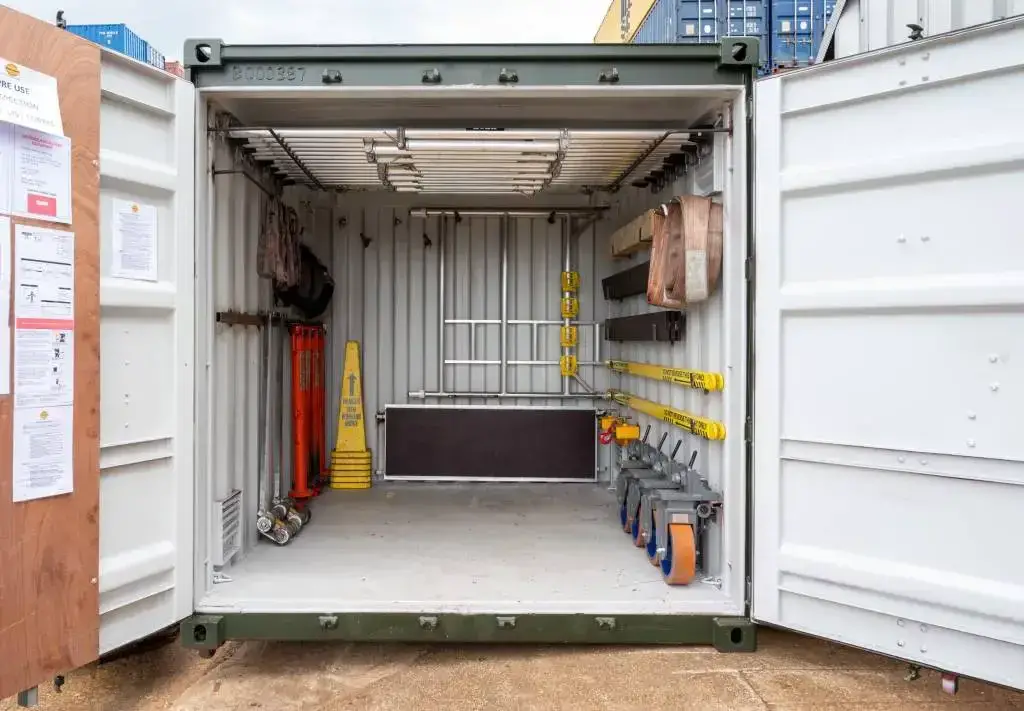
Shipping containers provide ample space to store agricultural equipment, tools, feed, and other supplies. With their durable nature, they can protect these items from harsh weather conditions and pests, ensuring their longevity.
2. Plant Propagation
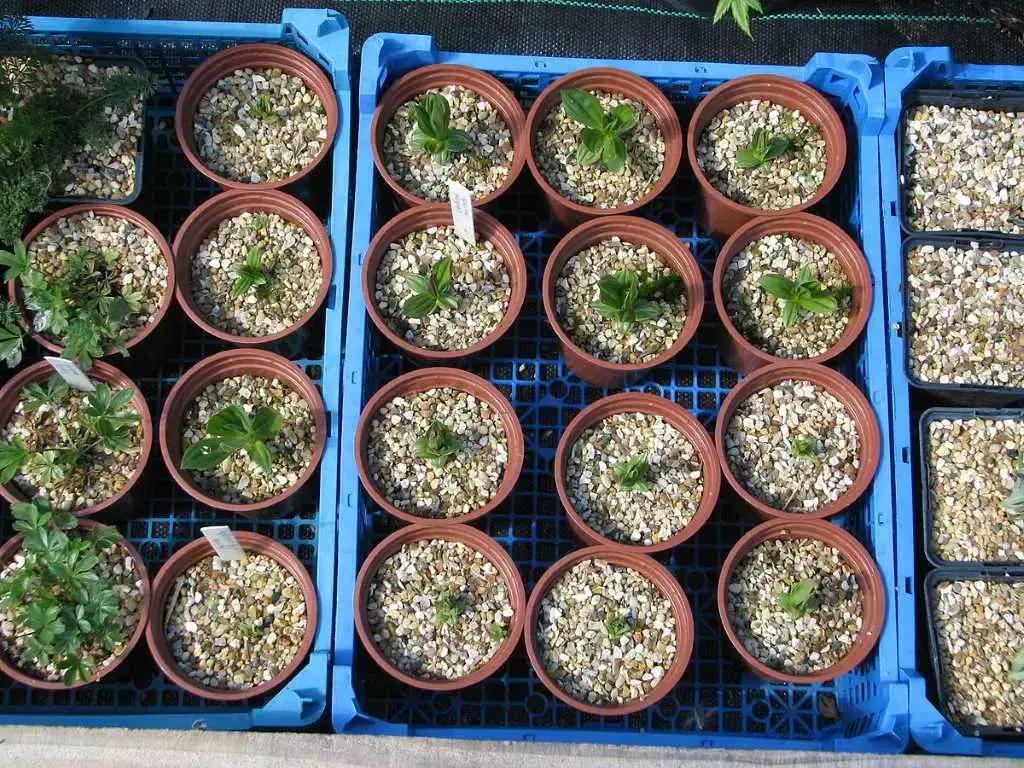
Container farming allows farmers to create controlled environments for plant propagation. By regulating temperature, humidity, and lighting, shipping containers can be transformed into ideal settings for germinating seeds and growing young plants.
3. Hydroponics
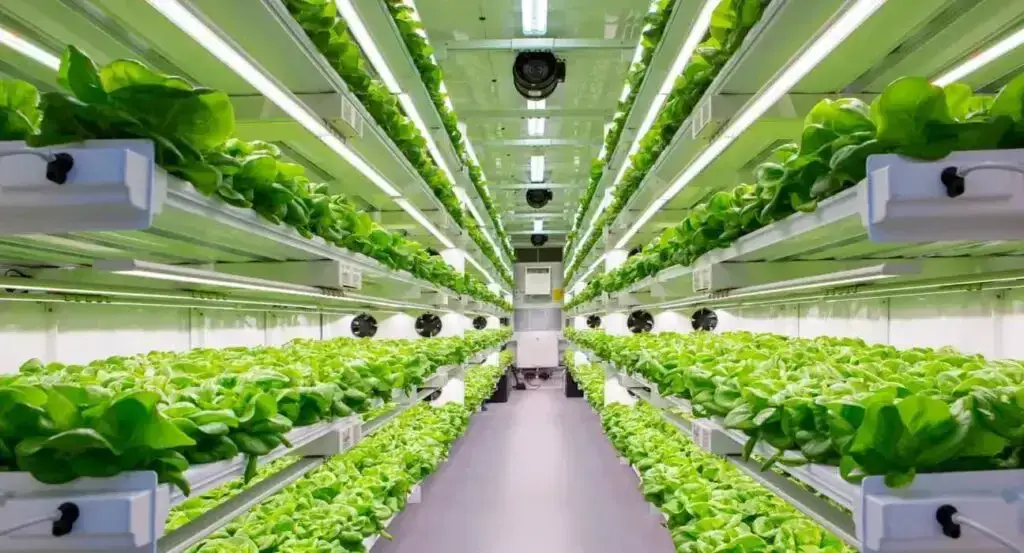
Certainly, hydroponics, a popular farming technique that involves growing plants without soil, can be effectively practiced in shipping containers.
At any rate, the controlled environment within the container allows for the precise distribution of nutrients and water, resulting in high-quality and efficient crop production.
4. Aquaponics
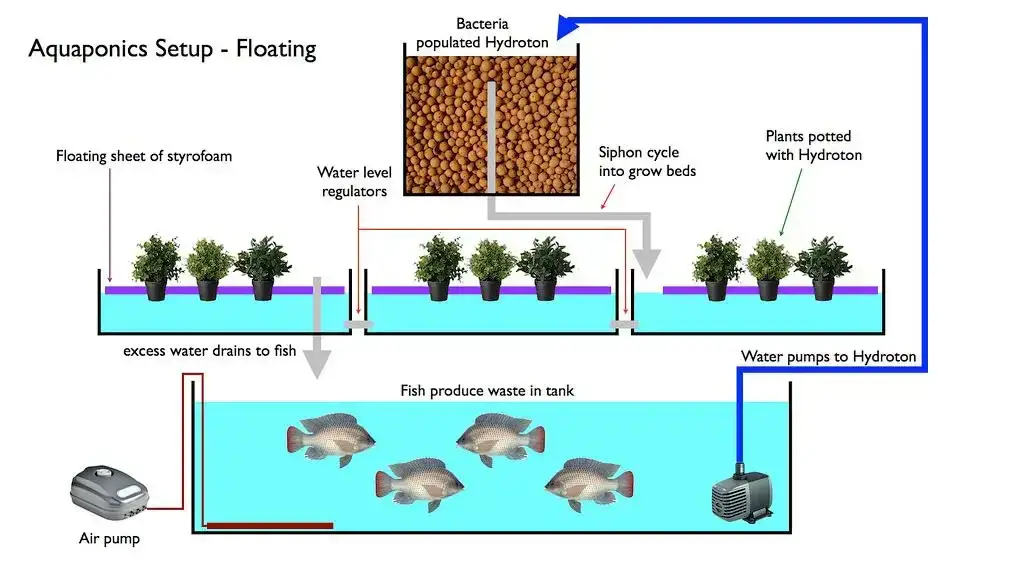
As can be seen aquaponics combines hydroponics with aquaculture, creating a symbiotic ecosystem where plants and fish thrive together.
Shipping containers can be modified to accommodate both the hydroponic setup and the fish tanks, making it a highly efficient method for growing both crops and fish.
5. Vertical Farming
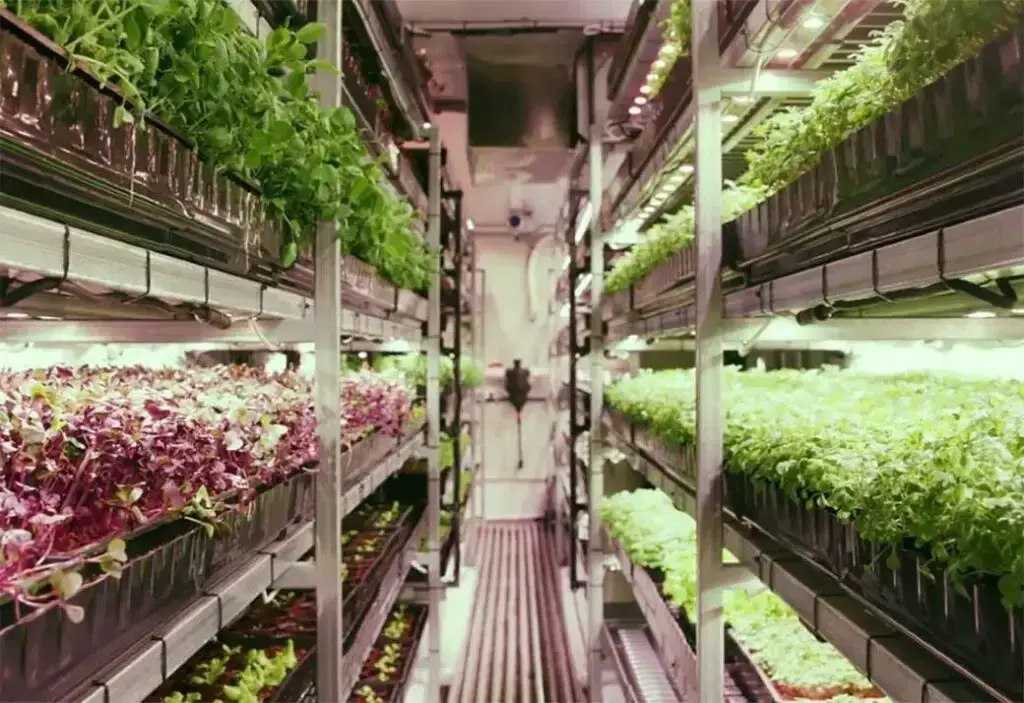
Vertical farming maximizes space utilization by growing crops vertically instead of horizontally. Shipping containers provide an ideal structure for vertical farming systems, allowing farmers to cultivate a significant amount of crops in a compact area. This method is particularly useful in urban farming or areas with limited agricultural land.
Utilizing shipping containers for farming purposes brings several advantages. It offers greater efficiency and control over the environment, allowing farmers to optimize crop growth.
Furthermore, it promotes sustainability in agriculture by reducing water usage and minimizing the need for chemical pesticides.
Urban farming has gained popularity in recent years due to the increasing demand for locally sourced produce. Shipping containers play a crucial role in this movement, as they can be easily integrated into urban landscapes, allowing for efficient and sustainable farming practices in urban areas.
Shipping containers can also serve as essential farm infrastructure. They can be transformed into farm offices, workshops, or even accommodation for farm workers. This versatility makes them a cost-effective option for creating necessary facilities on agricultural land.
Diversify Income Streams
By all means, by incorporating shipping containers into their operations, farmers can diversify their income streams.
These containers can be utilized for various purposes such as setting up farm stands, hosting events, or even establishing a farm-to-table restaurant. They present opportunities for farm diversification and revenue generation.
In addition to on-farm applications, shipping containers play a vital role in sustainable packaging and transportation within the agricultural industry.
They provide a secure and durable means for packaging and shipping farm products, ensuring their safe delivery to consumers while minimizing waste.
Shipping containers have also found their place in agricultural architecture. They can be used as building blocks for constructing sustainable structures like barns, greenhouses, and storage sheds.
This innovative approach to container architecture combines functionality with sustainability in agricultural settings.
Regulations and Permits to Use Containers on Agricultural Land
It’s important for farmers to be aware of the regulations and permits necessary to use shipping containers on agricultural land.
Local authorities may have specific guidelines regarding their placement, modifications, and usage within farming operations. Complying with these regulations is crucial to avoid any legal issues or penalties.
Lastly, when considering utilizing shipping containers for agricultural purposes, it’s essential to find reliable suppliers who specialize in container modifications.
These suppliers can assist in customizing containers based on specific farming requirements, ensuring they are equipped with the necessary features for optimal functionality.
In conclusion, shipping containers offer endless possibilities for enhancing agricultural practices. From storage to controlled environments, sustainable packaging to farm diversification, these containers prove to be a valuable asset in modern farming.
By embracing container farming and its associated applications, farmers can optimize productivity, sustainability, and profitability in the ever-evolving agricultural industry.
Read More on The Best Florida Container Home Builders
Container Farming: Efficiency and Controlled Environments
A. Explanation of Container Farming Concept
Container farming is an innovative approach to agriculture that utilizes modified shipping containers to create controlled environments for crop production.
These containers are equipped with advanced technology and systems, allowing farmers to have complete control over various environmental factors such as temperature, humidity, and lighting.
B. Benefits of Using Modified Containers for Agricultural Production
1. Controlled Environments for Optimal Crop Growth
All things considered, one of the key advantages of container farming is the ability to create optimal growing conditions for crops.
By customizing the climate inside the containers, farmers can mimic ideal environments for specific crops, regardless of external factors such as weather or location. This results in faster growth rates, higher yields, and improved crop quality.
2. Efficient Use of Resources
Container farming promotes resource efficiency through advanced irrigation systems, hydroponics, and automated controls.
These methods reduce water and fertilizer usage compared to traditional agriculture. Additionally, the controlled environments inside containers minimize pest infestations and disease outbreaks, further reducing the need for chemical pesticides and herbicides.
Read More on Are Container Homes Legal in Miami? Find Out the Facts!
Sustainable Agriculture and Shipping Containers
A. Integration of Shipping Containers for Sustainable Farming Systems
Agricultural practices have been continually evolving to meet the increasing demand for food production while considering the environmental impact.
Integration of shipping containers in farming systems has emerged as a sustainable solution to address these concerns.
B. Environmental and Economic Advantages
1. Local food production: By utilizing shipping containers, farmers can establish local food production systems that reduce the need for long-distance transportation. This not only decreases the carbon footprint but also promotes community engagement and supports local economies.
2. Reduced water consumption: Container farming allows for precise control of the water supply, reducing water consumption compared to traditional agricultural methods. This efficiency is achieved through advanced irrigation systems and the ability to condition the microenvironment within the container for optimal plant growth.
3. Minimized pesticide use: With controlled environments, container farming significantly reduces the need for pesticides. By preventing exposure to pests and diseases, farmers can minimize pesticide applications, contributing to a healthier and more sustainable agricultural system.
4. Decreased transportation costs: Shipping containers on agricultural land facilitate on-site food production, eliminating the need for long transportation routes. This reduces transportation costs and simultaneously decreases the overall carbon emissions associated with food transportation.
Read More on Shipping Container Homes In Arizona: Stylish And Affordable
Urban Farming and Shipping Containers
Urban farming initiatives have gained traction in recent years as urban areas face challenges in accessing fresh and sustainable produce. One of the key factors driving this trend is the role of shipping containers in urban farming endeavors.
A. Role of Shipping Containers in Urban Farming Initiatives
Shipping containers have emerged as a practical solution to address the limited space available for agriculture in urban areas.
With their modular and stackable design, these containers can be easily arranged to maximize space utilization, converting unused areas into productive farms.
B. Conversion of Containers Into Compact Vertical Farms or Rooftop Gardens
Shipping containers can be converted into compact vertical farms or rooftop gardens, making it possible to grow a wide variety of crops in a restricted area.
By employing hydroponics or other tailored growing systems, urban farmers can cultivate crops efficiently while optimizing resource usage.
C. Maximizing Limited Space for Fresh Produce in Urban Areas
Above all, in densely populated urban areas, incorporating shipping containers into farming practices allows for the efficient utilization of limited space.
These containers can be strategically placed in vacant lots, parking structures, or rooftops, enabling the cultivation of fresh produce right in the heart of the city.
Overall, the integration of shipping containers into urban farming initiatives offers a viable and sustainable solution to meet the growing demand for fresh and locally sourced food in urban areas.
Read More on Shipping Container Homes In Oklahoma: Stylish and Sustainable
Farm Infrastructure and Shipping Containers
Shipping containers play an essential role in farm infrastructure, providing farmers with a versatile and cost-effective solution for their storage needs.
A. Secure Storage for Farm Equipment, Tools, and Supplies
One of the major advantages of using shipping containers on agricultural land is that they offer secure storage for farm equipment, tools, and supplies.
These containers are built to withstand harsh weather conditions and can protect valuable items from theft and damage.
With a shipping container on their land, farmers can rest assured that their machinery and tools are safe from the elements and potential thieves.
This added security allows them to focus on their farming operations without worrying about the safety of their equipment.
B. Protection From the Elements and Theft
Shipping containers provide excellent protection from the elements, keeping farm equipment and supplies safe from rain, snow, and extreme temperatures.
By storing these items in a container, farmers can prolong their lifespan and reduce the need for frequent repairs or replacements.
In addition to weather protection, shipping containers offer a significant deterrent to theft. Their sturdy construction and lockable doors make it difficult for thieves to access the stored items, providing farmers with peace of mind.
By utilizing shipping containers as an integral part of their farm infrastructure, farmers can ensure the safety and longevity of their equipment, tools, and supplies while focusing on their agricultural activities.
Farm Diversification and Shipping Containers
As farming becomes more competitive and unpredictable, many farmers are turning to diversification as a way to supplement their income and create new opportunities.
One exciting avenue for diversification is the use of shipping containers on agricultural land. With their versatility and cost-effectiveness, shipping containers can be transformed into various alternative farm enterprises, providing farmers with additional revenue streams.
Read More on Shipping Container Home In Adelaide – Expert Review
Exploring Alternative Farm Enterprises
Shipping containers offer flexibility when it comes to exploring alternative farm enterprises. These enterprises could range from growing specialty crops like mushrooms or herbs to raising small livestock such as chickens or rabbits.
By utilizing shipping containers, farmers can easily create controlled environments that are suitable for specific crops or animals, maximizing productivity and profitability.
In addition to agriculture, shipping containers can also be used for non-farming enterprises such as beekeeping, honey production, or even aquaponics. This allows farmers to tap into multiple industries and diversify their offerings.
Using Shipping Containers for Food Markets, Farm-to-table Restaurants, and Agritourism Attractions
Shipping containers can also be repurposed as food markets, farm-to-table restaurants, and agritourism attractions. These unique structures can add character and distinction to a farm, attracting visitors and boosting its appeal.
Imagine a shipping container transformed into a trendy farm-to-table restaurant, where guests can enjoy fresh, locally grown produce in a rustic, farm-inspired setting.
The visibility and novelty of such a dining experience could be a major draw for both locals and tourists, contributing to the farm’s revenue and increasing awareness of sustainable agriculture.
Furthermore, shipping containers can be converted into food markets, providing a platform for farmers to sell their products directly to consumers. These markets can be set up on agricultural land, offering a convenient shopping experience for customers seeking farm-fresh produce.
Additionally, shipping containers can serve as components of agritourism attractions, such as farm tours, educational workshops, or even farm-stay accommodations.
With their adaptability, shipping containers can be customized to suit the unique needs of each enterprise, further enhancing the farm’s diversification efforts.
The possibilities for farm diversification with shipping containers are truly endless, limited only by the farmer’s imagination and creativity.
Sustainable Packaging and Transportation in Agriculture
As the agricultural industry increasingly focuses on sustainable practices, it is important to consider not only efficient farming methods but also sustainable packaging and transportation solutions.
By extending the discussion beyond farming practices, we can explore how shipping containers can contribute to a more eco-friendly agricultural sector.
A. Sustainable Packaging Solutions for Agricultural Products
One way to reduce the environmental impact of agriculture is by adopting sustainable packaging solutions for agricultural products.
Traditional packaging, such as plastic bags and containers, can contribute to pollution and waste. However, shipping containers offer an alternative option for packaging and storage.
Shipping containers can be converted into modular packaging units, providing a secure and reusable solution for transporting and storing agricultural products.
These containers are made from durable materials that can withstand various weather conditions, ensuring the preservation and protection of the goods within.
Furthermore, by utilizing reusable packaging solutions, farmers can reduce the amount of waste generated in the agricultural supply chain. This not only benefits the environment but also helps farmers save on packaging costs in the long run.
Read More on The Best Florida Container Home Builders
B. Environmentally Friendly Transportation Using Container Shipping Methods
In addition to sustainable packaging, container shipping methods can contribute to environmentally friendly transportation in agriculture.
Shipping containers can be transported by various modes of transportation, including ships, trains, and trucks, minimizing the carbon footprint associated with long-distance transportation.
By optimizing container storage and load capacity, farmers can maximize transportation efficiency, reducing the number of trips required to deliver their products.
This decreases fuel consumption and greenhouse gas emissions, making agricultural transportation more sustainable.
Furthermore, the use of container shipping also allows for streamlined logistics and improved supply chain management. This reduces the likelihood of product spoilage or damage during transit, ensuring the freshness and quality of agricultural products.
Sustainable packaging and transportation in agriculture are essential components of a more environmentally conscious industry.
By utilizing shipping containers for packaging and adopting container shipping methods, farmers can contribute to a greener and more sustainable future for agriculture.
Container Architecture in Agricultural Settings
Repurposing shipping containers as structures on agricultural land offers a multitude of benefits for farmers and the environment.
These containers, originally designed for cargo transportation, can be transformed into functional and versatile spaces that serve various purposes on the farm.
One example of container architecture in agricultural settings is the use of shipping containers as farm stands. These modified containers can be strategically placed at farmers’ markets or on the farm itself, providing a convenient and visually appealing space for selling produce and other farm products.
The sturdy structure of shipping containers ensures their durability and longevity, making them an ideal choice for outdoor use.
Additionally, shipping containers can be repurposed into farm offices. These compact yet efficient workspaces offer farmers a designated area to manage administrative tasks, conduct business meetings, and organize farm-related activities.
Container offices can be equipped with necessary amenities such as electricity, insulation, and ventilation, creating a comfortable and productive environment.
Temporary housing for farm workers can also be created using shipping containers. These affordable and easily transportable structures provide a suitable and convenient living space for seasonal or migrant workers.
By repurposing shipping containers as temporary housing, farmers can ensure the well-being of their workers while minimizing costs and environmental impact.
Read More on Biogas: The Good And The Not-So-Good Part You Need To Know
Regulations and Permits for Shipping Containers on Agricultural Land
When considering the use of shipping containers on agricultural land, it is crucial to be aware of the regulations and permits that must be adhered to.
Failure to comply with these requirements can lead to legal complications and potential disruptions to your farming operations. Therefore, understanding specific regulations and obtaining the necessary permits is essential.
A. Understanding Specific Regulations and Requirements
Each region and country may have its own set of regulations and requirements relating to the use of shipping containers on agricultural land.
It is vital to thoroughly research and understand these specific guidelines before proceeding with any container-related projects. This will help ensure that your activities are in line with the law and prevent any unnecessary obstacles.
B. Zoning Laws, Building Codes, and Permits for Container Use in Agricultural Settings
One crucial aspect to consider when using shipping containers on agricultural land is zoning laws. Zoning regulations define what activities are allowed in different areas, including agricultural zones.
It is essential to confirm with local authorities that shipping containers are permitted on your specific parcel of agricultural land.
Furthermore, building codes may apply to the use of shipping containers in agricultural settings. These codes specify the standards for safety and construction that must be met.
It is important to ensure that all modifications or installations on the shipping containers comply with building code requirements to guarantee the safety of your farm and its surroundings.
In addition to zoning laws and building codes, permits may be required for the placement, modification, or even the use of shipping containers on agricultural land.
These permits are usually obtained from the respective local government or relevant authorities. Understanding the permit application process and obtaining the necessary permits is crucial to avoid potential legal issues and disruptions.
Consulting with experts or professionals familiar with local regulations and permit requirements can be beneficial in navigating the process and ensuring compliance.
Container Modifications and Suppliers
When it comes to repurposing shipping containers for agricultural use, there are plenty of modification options available. These modifications can transform a standard container into a functional and efficient farming-ready infrastructure.
Exploring Container Modification Options
Container modifications can include adding windows, doors, insulation, and ventilation systems to control the climate within the container. And so by installing these features, farmers can create controlled environments that are conducive to growing specific crops.
In addition to climate control, containers can also be modified to include irrigation systems, vertical farming racks, and shelves for optimal space utilization. These modifications maximize the growing capacity and efficiency of container farming.
Furthermore, containers can be customized to accommodate specialized equipment such as hydroponic or aquaponic systems.
Finally, by integrating these systems into the container, farmers can leverage cutting-edge agricultural techniques to enhance productivity and sustainability.
Companies Specializing in Transforming Containers Into Farming-ready Infrastructures
Several companies have recognized the potential of shipping containers in agriculture and specialize in transforming them into farming-ready infrastructures.
These companies offer expertise in container modifications and can assist farmers in creating customized solutions tailored to their specific needs.
Whether farmers require basic modifications or more complex systems, these companies can provide professional advice, design services, and skilled labor to ensure the successful transformation of containers into functional farming spaces.
Their experience and knowledge in container architecture for agriculture make them valuable partners in this innovative farming practice.
Moreover, these companies can also source and supply high-quality shipping containers that meet the necessary specifications for agricultural use. By providing reliable containers, they ensure the foundation for a successful container farming venture.
In conclusion, container modifications and suppliers play a crucial role in enabling farmers to harness the potential of shipping containers in agriculture.
With their expertise and resources, farmers can convert standard containers into modern and efficient farming infrastructures, contributing to the growth of sustainable and controlled farming practices.
Read More on 15 Best Container Homes You Can Own Under $100K
Benefits of A Shipping Container On Agricultural Land
There are several advantages of a shipping container on agricultural land, chief among them being the following.
1. Shipping Containers Are Versatile for Various Farm Purposes
One of the advantages of employing shipping containers on agricultural land is their adaptability. Without doubt, they are easily adapted for various purposes, including storage for farm equipment, animal stables, and even as a container office or workshop.
The containers are available in different sizes and may meet various demands, making them versatile for farmers searching for cost-effective options.

Read More: 11 Greatest Solar Tech Advancements Of 2023
2. They Are Secure and Offer Protection Against Harsh Weather and Rodents
Shipping containers are composed of durable materials and are meant to endure extreme weather conditions. They are wind and waterproof, so the contents within the container are safe from the elements.
Furthermore, shipping containers are rodent-proof, which helps safeguard stored commodities from rodent damage and contamination.
Read More: Environmental Impact Of Solar Energy
3. Buying A Shipping Container Is Cost-effective
Shipping containers are a low-cost storage alternative for farmers. Shipping containers are frequently less expensive than erecting a barn or acquiring pre-made structures. They are also updated and repurposed, making them a versatile investment for farmers.
Read More: High Efficiency Solar Panels: Expert Comparison And Costs
4. Shipping Containers Are Portable and Easily Movable
As I mentioned before, shipping containers are meant to be portable and easily transportable. This implies that if a farmer needs to transfer the container, a tilt bed trailer may easily transport it.
Shipping containers’ mobility makes them a perfect alternative for farmers transporting storage or equipment from one site to another.
Read More: Top 15 Best Solar Powered Home Designs And Their Cost
5. Shipping Containers are Weather-resistant and Provide Feed Storage Protection
Shipping containers are weather-resistant and can safely store animal feed, hay, or fodder. This keeps the feed dry and free of spoiling, even in extreme weather conditions.
Shipping containers are a useful tool for farmers that need to maintain their feed supplies because they are secure and waterproof.
Read More: Solar Panels Components And Installation: Expert Guide
6. Repurposing Shipping Containers Is an Environmentally Friendly Option
Because it promotes recycling and repurposing, using shipping containers for farming is an environmentally responsible solution.
Rather than discard used containers, farmers can recycle them for various purposes in their fields. This saves waste and promotes a more environmentally friendly farming method.
Read More: Solar Lease Vs Solar Financing: Which Is Better?
Types of Shipping Containers and Their Functions in The Farm
20ft Shipping Containers
A 20ft container is 20 feet long and is ideal for storing smaller machinery, narrow machinery, heavy equipment, tools, and supplies.
Note that a shipping container on agricultural land can protect farm equipment and tools from theft, damage from weather changes, and other potential hazards. The smaller size of a 20ft container makes it easy to transport and position in tight spaces on the farm.
Read More: Tesla Solar Roof Cost 2023, Other Solar Tile Options: Expert Look
40ft Shipping Container on Agricultural Land
Without doubt, a 40ft container is 40 feet long and can store larger equipment or larger quantities of supplies. These include livestock feed, fertilizer, and other agricultural materials.
A 40ft shipping container on agricultural land can also be used as an office, workshop, or even converted into animal stables. It provides more space than a 20ft container and can be helpful for larger agricultural operations.
Read More: Best 15 Home Energy Efficiency Improvement Plus Cost: 2023
40ft Hc (High Cube) Containers
A 40ft HC (high cube) container is 40 feet long and 9’6″ high, one foot taller than a standard 40ft container. It is ideal for storing larger equipment or converting it into animal stables.
The additional height provides more vertical space for animals to move around and store equipment. A 40ft HC container can also be used for shipping container farming or other innovative uses on agricultural land.
Read More: What Is Green Energy? Simplest Expert Explanation
Things to Consider Before Putting a Shipping Container on Agricultural Land
1. Permanent Structures
Shipping containers must be transportable to avoid being classified as a permanent structures. And so this means using a container as a field shelter, barn, or any other fixed outdoor building would require planning permission.
Read More: 9 Creative Ideas For Shipping Container Home Design And Décor
2. Farmland Campsites
Under UK law, shipping containers are classified as caravans. Take note that this means you can keep up to three containers on a farmland “campsite” for a maximum of 28 days per year without planning permission. However, if you plan to keep them for longer, you will need to obtain the necessary permission.

Read More: Amazing Cost To Build A Shipping Container Home
3. Permanent Living Space
Using a shipping container as a permanent living space could result in the farm being reclassified from agricultural to residential. Thus, before using a shipping container as a long-term living space, it’s necessary to obtain planning permission.
How Can You Use Shipping Containers On Your Farm?
1. Farming Machinery and Equipment Storage
Safe and secure storage of machinery, equipment, and tools is essential for optimal farming operations. All new or used containers are thoroughly inspected to ensure they are structurally sound, wind and watertight, rodent-proof, and equipped with solid floors and functional doors.
In particular, 20′ or 40′ standard or high cube containers easily store daily supplies, smaller machinery, larger narrow machinery, and heavy equipment.
Read More: How To Finance A Container Home: All You’ll Need
2. Livestock Feed Storage
Protecting your feed supply is crucial to ensure the health and growth of your livestock. Without a doubt, weatherproof and rodent-proof shipping containers are a great solution to protect your animals’ access to fresh and healthy feed.
3. Office or Workshop
A shipping container can be converted into an office or workshop for your employees. Whether for administrative work or fixing tools, a modified container office or workshop is perfect for all your work needs.
Read More: Cost To Build A Container Home In Texas: Expert Analysis
4. Shipping Container as Animal Stable on Agricultural Land
Converting a high-cube shipping container into an animal stable is a cost-effective way to save money on building an entire barn.
With the right modifications, such as stable doors, windows, and ventilation, you can provide a safe and comfortable environment for your livestock. Shipping containers are also durable and easy to transport, making relocation an effortless task.
Read More: The Best Container Home Builders In Jacksonville Florida
5. Shipping Container Farm
Freight container farming is an innovative and emerging trend in accessible farming. With controlled conditions and minimal footprint, shipping container farms are ideal for regions experiencing extreme weather changes.
Indeed, experiment with the produce you grow inside a modified container and see if this is the future of accessible farming.

Read More: Is It Cheaper To Build A Barndominium Or Container Home? Easy
Conclusion
In conclusion, the use of shipping containers on agricultural land offers a myriad of benefits and potential for the farming industry. Throughout this content, we have explored various aspects of this innovative approach.
And so we began with an introduction to the concept, highlighting the importance of efficient and controlled environments in container farming. We then delved into the sustainable aspects of this practice, emphasizing how it can contribute to the reduction of waste and carbon emissions in agriculture.
Moreover, we discussed the impact of shipping containers on urban farming, highlighting the opportunity they present for cultivating fresh produce in densely populated areas.
We also explored their role in farm infrastructure, showcasing how containers can serve as cost-effective storage solutions, workshops, and even provide temporary housing for farm workers.
Furthermore, we examined the potential for diversification in agriculture through shipping containers, showcasing how they can enable farmers to expand their product offerings and tap into new markets.
Eco-friendly Practices in the Agricultural Supply Chain
Another crucial aspect addressed in this content is sustainable packaging and transportation, emphasizing how shipping containers can contribute to more eco-friendly practices in the agricultural supply chain.
We also explored the realm of container architecture in agricultural settings, showcasing examples of innovative designs that can inspire farmers to embrace this approach.
Regulations and permits for shipping containers on agricultural land were also discussed, providing insights into the legal considerations involved in implementing this practice.
Lastly, we explored container modifications and suppliers, highlighting the availability of services and products that can help farmers transform shipping containers into functional and efficient spaces for farming.
In summary, the use of shipping containers on agricultural land presents a remarkable opportunity for the farming industry to enhance efficiency, sustainability, and productivity. By exploring the topics covered in this content plan, we have only scratched the surface of the vast potential this approach offers.
We encourage farmers, innovators, and stakeholders in the agricultural sector to further explore and implement this innovative approach. Together, we can revolutionize the way we farm, ensuring a greener and more sustainable future for all.
Read More on Shipping Container Homes in New Mexico: Expert Look

